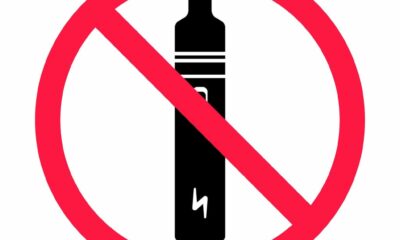Best of Johannesburg
How to Spot Job Scams in South Africa in 2025: What Every Jobseeker Should Know

In a country where millions are searching for work, scammers are finding new ways to take advantage of hope. In 2025, job scams have become more sophisticated, spreading through WhatsApp groups, social media pages, and even professional networking sites. The tactics may look convincing, but the red flags remain the same, and knowing them could save you from serious loss.
Why job scams are rising in South Africa
South Africa’s high unemployment rate continues to make jobseekers vulnerable. Fraudsters prey on desperation, luring people with promises of high-paying jobs, remote positions, or international opportunities. The Department of Employment and Labour, alongside youth organisations, has warned that young people are especially at risk of falling for these fake offers, particularly those spread through social media or unofficial recruitment channels.
These scams often lead to financial loss or identity theft, and in some severe cases, they’ve been linked to human trafficking rings that advertise fake overseas work. With digital recruitment on the rise, awareness is more critical than ever.
The top red flags every jobseeker should look out for
Upfront payments: No legitimate employer will ever ask for money to apply, secure a position, or attend training. South African law strictly prohibits recruitment agencies from charging jobseekers fees for placement.
Unrealistic salaries: If the offer seems too good to be true, it probably is. Be cautious of jobs that promise large salaries with little to no experience required.
No proper interview process: Authentic companies conduct structured interviews or assessments. Offers made after a short text chat or email exchange are rarely legitimate.
Vague job descriptions: Scam adverts often use broad or generic job titles without clear details about responsibilities, qualifications, or the company itself.
Unprofessional communication: Emails filled with spelling errors or sent from free accounts like Gmail or Yahoo should raise suspicion. Reputable companies communicate through professional domains and official contact details.
Pressure to act quickly: Scammers rely on urgency to push you into making mistakes. A legitimate company will give you time to read through details and confirm information.
Requests for personal information: Your ID number, banking details, or home address should never be requested before a formal offer or verified hiring process.
No traceable company presence: Always research the organisation online. A company with no website, registered address, or CIPC record is a major red flag.
How to protect yourself
Do a quick search for the company name and cross-check details with official sources. Use reliable job boards rather than social media ads. Always confirm the recruiter’s identity through LinkedIn or official company contacts, not through the details provided in the job ad.
If something feels off, stop communicating immediately and avoid sharing documents or transferring money. Report the scam to the Department of Employment and Labour, SAPS, or through the job portal where the listing appeared.
Legitimate employers never ask you to pay for a job, not for uniforms, not for training, and not for background checks.
Staying alert in a digital age
More South Africans are now reporting scams online, helping others avoid the same traps. Social media users regularly post screenshots of fake adverts, helping the community stay aware. Jobseekers can protect one another by sharing information and verifying listings before applying.
Raising awareness is the strongest defence. The more people recognise the signs, the fewer will lose their savings or personal data to fraudulent schemes.
Job hunting should be a hopeful process, not a costly one. Trust your instincts, verify every offer, and remember: real opportunities never require payment.
Also read: From Likes to Lawsuits: How Your Social Media Posts Can Be Used in Court in South Africa
Follow Joburg ETC on Facebook, Twitter, TikT
For more News in Johannesburg, visit joburgetc.com
Featured Image: Facebook/Chandler Macleod



























